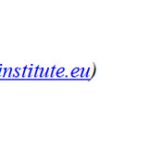
Berlin, 30 November 2021 – In June, the Joint Research Centre (JRC) of the European Commission (EC) published its methodology for Life Cycle Assessment (LCA) comparing the environmental impact of fossil-based to bio-based feedstocks for plastics production. “Together with other bio-based industries, we support LCAs as a valuable instrument to measure environmental sustainability. Unfortunately, the approach of the JRC in this study lacks important elements that are crucial for a fair, comparative assessment of bio-based and fossil-based plastics. As a result, it clearly favours conventional plastics made from fossil resources”, comments Hasso von Pogrell, Managing Director of European Bioplastics (EUBP).
Over the past three years, EUBP and other industry stakeholders were given the opportunity to provide input to the LCA methodology comparing bio-based to fossil-based plastic products. In close exchange with the JRC, a comprehensive amount of expertise was provided. But the final methodology still clearly favours fossil over bio-based plastics, which compromises many deliverables set out by the European Green Deal.
Most problematic is the methodology’s approach of omitting the added value of biogenic carbon sequestration. This undermines the key advantage of bio-based products, which is to remove carbon dioxide from the atmosphere and to store it in products, replacing fossil carbon and reducing the emission of green-house gases. “We strongly recommend including the uptake of biogenic carbon as a mandatory part of any comparative LCA”, states von Pogrell.
The methodology includes several other flaws preventing a fair and balanced evaluation. The different maturity levels of fossil- and bio-based production systems have not been taken into account sufficiently, and data reporting requirements in general show significant differences. The same goes for Land Use Change rules that provide less strict requirements for fossil-based plastics. This results in an inconsistent inclusion of indirect effects, establishing different burdens of proof. The methodology also does not reflect the existence of multiple end-of-life realities and fails to treat all recycling options, including organic recycling, equally.
“Plastics are essential to modern life. We have a choice as to whether we want to continue to obtain the required carbon for plastics from fossil resources, or whether we aim for a transition towards obtaining this necessary carbon from the atmosphere”, says the Managing Director of EUBP. In order to enable an adequate and balanced evaluation, EUBP has summarised the methodology’s most important flaws in a new position paper that is supported by the European Bioeconomy Alliance of which EUBP is a member.
European Bioplastics represents the interests of the European bioplastics industry. Its members include companies from the entire value chain. The members produce, process and distribute plastics that are made from renewable raw materials, are biodegradable or combine both properties. Further information can be found at: www.european-bioplastics.org.


